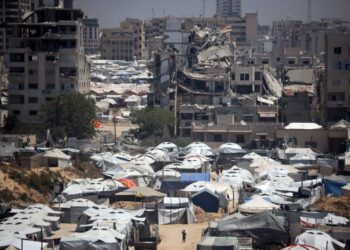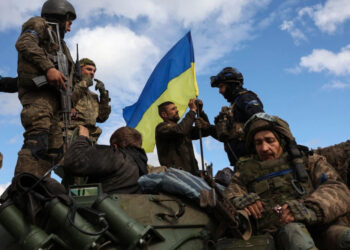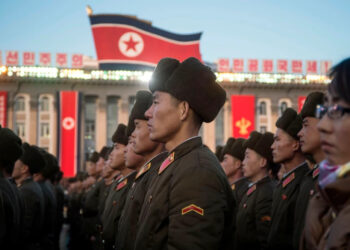Russia and Ukraine agreed to a large-scale prisoner exchange, committing to trade 1,000 prisoners from each side. This agreement emerged during their first direct talks in over three years, held on Friday in Istanbul. The discussions, which lasted just over 90 minutes, included talks on a possible ceasefire and a potential meeting between Ukrainian President Volodymyr Zelensky and Russian President Vladimir Putin.
Kyiv is pushing for an “unconditional ceasefire” to halt a conflict that has ravaged Ukraine and displaced millions. However, Moscow has consistently rejected such proposals. The only tangible outcome from the talks was the prisoner exchange; both sides promised to present their respective visions for a potential ceasefire, as noted by Russia’s top negotiator, Vladimir Medinsky. Despite this, there was no agreement to suspend fighting.
Ukrainian Defence Minister Rustem Umerov expressed that the “next step” should involve a meeting between the leaders. Russian representatives acknowledged the request. Meanwhile, Ukrainian Foreign Ministry spokesman Georgiy Tykhy described the prisoner swap as a “great result” and emphasized the necessity of dialogue for progress.
Turkish Foreign Minister Hakan Fidan, who facilitated the meeting, indicated that the sides agreed in principle to reconvene and would formally submit ceasefire proposals. The talks were held at Istanbul’s Dolmabahce Palace, with delegates facing each other across a table adorned with Turkish, Russian, and Ukrainian flags.
However, substantive progress on critical issues seemed limited. Tykhy noted that Russia presented several “unacceptable demands,” including calls for Ukraine to concede more territory, which a source described as a tactic to hinder negotiations. The mere occurrence of the talks suggested a degree of momentum, given the sustained pressure from Washington for both sides to engage in dialogue.
Putin, opting not to travel to Turkey, sent a lower-level delegation instead. Zelensky characterized Putin as being “afraid” to meet in person and criticized Russia’s lack of seriousness in the discussions. Amid the talks, he urged for a global response, including additional sanctions, should negotiations fail.
On the international front, discussions regarding additional sanctions against Russia are ongoing among European nations and the United States. French President Emmanuel Macron indicated coordination with the U.S. if Moscow refuses to agree to an “unconditional ceasefire.”
Prior to the negotiations, Ukrainian officials met with U.S. Secretary of State Marco Rubio and other Western leaders, where Rubio underscored the need for a “peaceful” resolution to the ongoing conflict. Reports indicated that Russia was making hardline territorial demands, asserting claims over five Ukrainian regions, including those annexed during its 2022 invasion and the Crimean region, annexed in 2014.
Sources within the talks relayed that Russian representatives were insisting Ukraine withdraw its forces from significant areas it controls as a prerequisite for a ceasefire. They accused Moscow of presenting demands aimed at causing the negotiations to collapse without achieving any results. In particular, there were threats regarding the potential capture of Ukraine’s Sumy and Kharkiv regions, which border Russia, although Moscow had previously refrained from making formal claims over these territories.












